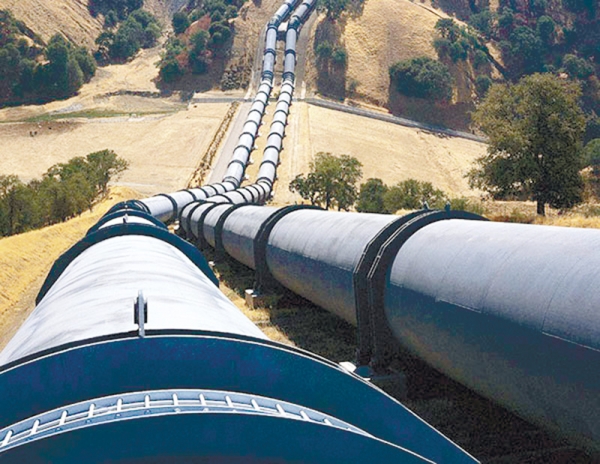Gas pipeline at LBP 685 billion
Pipeline
The prospective pipeline is 175 kilometers long and has a diameter of 36 inches. It is to be installed either within the railway zone, so as to dispense with the need for land acquisition, or in the sea if necessary. Pipe laying is divided into 5 segments:
- Segment 1: 36 kilometers extending from the Deir Ammar power plant to Salaata at a cost of USD 87.817 million.
- Segment 2: 42 kilometers extending from Salaata to the Zouk power plant at a cost of USD 70.961 million.
- Segment 3: 36 kilometers extending from Zouk to Naameh at a cost of USD 157.383 million, which is a relatively high cost given that the pipelines will be laid in the sea.
- Segment 4: 33 kilometers extending from Naameh to Zahrani at a cost of USD 66.951 million.
- Segment 5: 30 kilometers extending from Zahrani to Tyre at a cost of USD 60.863 million.
The sector extending from the Syrian borders to the Deir Ammar station has already been covered by the Tripoli Oil Installations.
A study issued by the Ministry of Energy and Water revealed that converting the power plants to run on natural gas would save the treasury LBP 1032 million, probably an over-exaggerated figure. According to the Ministry’s statistics, the annual diesel fuel consumption of Lebanon’s power plants is estimated at 2.2 million tons translating into roughly USD 2.248 billion, the ton being at USD 1019. Conversely, generating power by natural gas would need 93.6 million square meters of gas per year worth around USD 1.215, i.e. down by USD 1.033 billion from the cost sustained if the plants were powered by diesel fuel.
Gas Source
According to the Ministry of Energy and Water, Lebanon gets its main gas supply through the Arab Gas Pipeline, which exports gas from Egypt and the Gulf region. The country can also depend on gas imports from Russia via Turkey and now with the possibility of having offshore gas in Lebanese waters, Lebanon is likely to benefit from its own reserves.
However, the unrest that broke out in Syria and Egypt has blocked the flow of gas into Lebanon, which means that the pipeline installation is worthless as the gas is unavailable to begin with. Hence, any talks about saving and economic feasibility are deemed futile for the time being, for the funds would be spent on a pipeline that transports nothing.








Leave A Comment